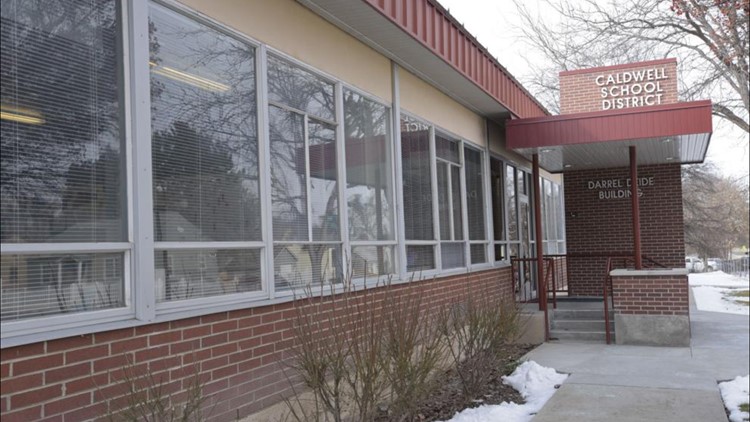BOISE, Idaho — This article originally appeared in the Idaho Press.
Tammy Dittenber still thinks about her friend, Jodie Miller.
“I can still hear her laugh. And I can still hear her cry,” Dittenber said.
Both raised in Caldwell, the pair met in the fourth grade, Dittenber said. Miller was a gifted musician who played viola and sang in choir.
They stayed in touch following graduation, but Miller’s mental health was deteriorating, Dittenber said.
Miller’s struggles stemmed from “the trauma of living a life feeling unaccepted by her family, her church, and her school,” Dittenber said. “She took her own life before she turned 24.”
Dittenber shared the story during a public input period at the Caldwell School Board’s Dec. 12 meeting. The district is considering proposed policy 3281 Gender Identity and Sexual Orientation, which lists several sub-policies aimed at affirming student gender identity and sexual orientation.
“This policy is designed to create a safe learning environment for all students and to ensure that every student has equal access to all school programs and activities,” the policy draft says.
The policy is proposed and “is still being vetted,” said Jessica Watts, director of communications for the district, via email.
One part of the proposed policy says that if students want to use different school facilities “based on the gender identity they most express at school,” their parents would need to request to meet with the school’s principal or school administrator to understand the student’s needs. The goal is to develop a plan that “is in the best interest of the student, and will be signed by all parties involved, noting the consensus, and any dissenting opinions,” the draft said.
Based on the plan, the students will be allowed to use the bathroom and locker facilities that correspond to their gender identity, including separate changing room or facilities if they wish.
Another part of the proposed policy, “student records and privacy,” says that students will be addressed with the pronouns that match their gender identity, care will be taken by district staff to “avoid the inadvertent disclosure of a student’s transgender status,” and that the student’s educational record will not disclose the student’s sexual orientation.
Another section, “confidentiality,” says that staff talking to the parents of a transgender student would have to use the student’s legal name and pronouns corresponding to the gender the student was assigned at birth, unless a previously determined plan says differently.
Other parts of the policy include allowing a student to go on overnight trips regardless of their sexual orientation or gender identity, and allowing students to participate in school activities that are separated by gender “in a manner that is consistent with their gender identity consistently expressed at school.”
Dittenber said she thinks the policy would support LGBTQ students. Fewer than a third of transgender youth have homes affirming of their identity, but youth who live in a community accepting of their identity have a significantly lower risk of suicide, she said.
“The fact that very simple things, like support from family and friends, seeing LGBTQ representation in media, having your gender and pronouns respected can have such a positive impact on the mental health of an LGBTQ person is inspiring,” Dittenber said. “It should command more attention in our public schools and in our communities, and especially as we discuss suicide prevention in public debates around LGBTQ inclusion,” Dittenber said.
Dittenber was one of four people who spoke during the comment period about proposed district policies, which was informational only.
Miguel Pesina also spoke in favor of adopting the policy. Students need to feel safe, particularly if they come from a household where their identity is not accepted.
Pesina said he grew up with a mother who was welcoming, but he still did not come out until he was a junior. He said he wishes this policy existed when he was a student in the district. He now is the guardian for nieces who are students there.
“You bet your ass that I’m going to protect them at all times and speak up when nasty little troglodytes bring things up in situations like this,” Pesina said.
Two people spoke against the proposed policy: Nicole Trakel and her husband, Idaho Rep.-elect Chris Trakel, who are parents of students in the district.
Nicole Trakel said she was particularly concerned about the part of the policy that would allow a student to use pronouns different from the ones corresponding to the gender they were assigned at birth, as well as the part that would allow the district to keep a student’s gender identity confidential from their parents.
“I don’t like that that can be secretive and held at a school and not have parents involved in allowing it in the first place, and then basically, tricking the parent when (the district is) calling, acting like nothing has happened,” Nicole Trakel said.
She also expressed concern about young women being “exposed to penises” in locker rooms and the potential for sexual assault.
Trakel said such a policy would promote the well-being of a small number of students at the expense of others.
Chris Trakel agreed, saying that transgender students make up “less than 0.00009% of students,” and, “the majority in our country does not bend to a minority.”
Analysis of national data indicates that the number of students aged 13-17 who identify as transgender is 1.4%, according to the organization Education Week.
Chris Trakel also said that he is not sure the district is prepared for litigation that would follow enactment of such a policy.
“If there’s one photo, if there’s one look the wrong way, or one act, this school and the district would be sued into oblivion, and I hope you’re ready for that,” he said.
Board Chair Marisela Pesina asked Trakel to refrain from making threats, to which Trakel responded, “I’m not making any threats; I’m telling you what’s already happened in another state.”
Asked about the next steps for the proposed policy, Watts said, “we are in the process of gathering input from patrons, administrators, and working with our attorney,” adding that there is not a set date for the policy to have a first reading.
This article originally appeared in the Idaho Press, read more on IdahoPress.com.
Watch more Local News:
See the latest news from around the Treasure Valley and the Gem State in our YouTube playlist:



